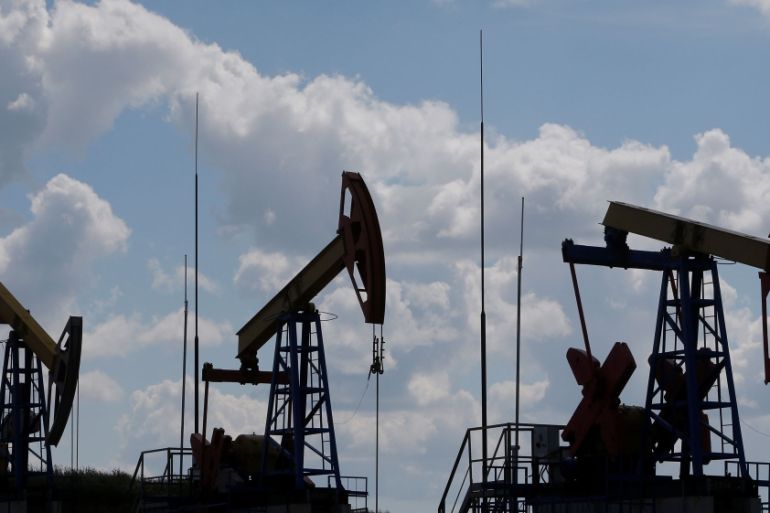What is OPEC?
Qatar pulls out of the Organization of the Petroleum Exporting Countries, which controls global oil output.

Qatar announced on Monday it was leaving the Organization of the Petroleum Exporting Countries (OPEC), the world’s leading oil producing bloc.
The Gulf state, which has been a member of OPEC since 1961, said it wanted to focus more on the production of Liquefied Natural Gas (LNG). Qatar supplied about 2 percent of annual OPEC output.
Keep reading
list of 4 itemsOPEC+ agrees voluntary oil production cuts
Will food prices get higher?
Iraq approves record $153bn budget aimed at creating jobs
The decision comes days ahead of a scheduled meeting of the oil bloc in Vienna, Austria and amid tension with leading OPEC member Saudi Arabia, which has imposed a land and air blockade on Qatar since 2017.
Qatar’s Energy Minister Saad Sherida al-Kaabi, however, said that it was purely a business decision.
What is OPEC
OPEC was founded in 1960 by Iran, Iraq, Kuwait, Saudi Arabia and Venezuela, five major oil-producing countries.
According to OPEC’s website, its goal is “to coordinate and unify the petroleum policies of its Member Countries and ensure the stabilisation of oil markets in order to secure an efficient, economic and regular supply of petroleum to consumers, a steady income to producers and a fair return on capital for those investing in the petroleum industry”.
In reality, OPEC is one of the most powerful players in the global supply of oil, as the organisation produces more than a third of global oil supply.
On a day-to-day basis, OPEC countries produce about 32 million barrels of oil per day, giving the organisation significant influence over both the number of barrels produced per day and the oil price as a whole.
By increasing or reducing oil production, OPEC controls oil supply, which means it can increase or reduce the price of oil.
This happened in early December when OPEC and Russia – not a member of OPEC – said they would cut oil supply to ensure prices did not drop too much in the coming year, as both Russia and many OPEC countries heavily rely on oil exports for their economy.
Mohammed Barkindo of Nigeria is currently the Secretary-General of the 15-member bloc.
But Saudi Arabia, the largest contributor to OPEC’s oil output, is considered the de facto leader of the organisation.
Delegations from member states meet at least twice a year during which countries vote on proposals.
Which countries are members of OPEC
Qatar joined the bloc in 1961, making it the first non-founding member to be added to the organisation. over the following decades, countries including the United Arab Emirates (UAE), Ecuador, Nigeria and Algeria joined.
After Qatar’s decision to leave the bloc, 14 member countries remain.
Qatar is not the first country to leave OPEC. Indonesia, Gabon and Ecuador have all previously left. All three returned at a later stage, but Indonesia, which rejoined and withdrew a second time in 2016, has not returned to the bloc since.
Besides permanent members, OPEC also has several so-called observers, oil-producing countries that attend OPEC meetings. Among these countries are Egypt, Mexico, Norway, Russia and Oman.
Criticism of OPEC
Over the decades, OPEC has regularly been criticised for its role in fixing the global oil market.
In its glossary of Industrial Organisation Economics and Competition Law, the Organisation for Economic Co-operation and Development (OECD) has called OPEC an international cartel as it controls aspects such as price, supply and several other factors.
However, OPEC has said in its defence that it is merely a protection against the power of the so-called Seven Sisters – the seven global oil giants including BP, Royal Dutch Shell, Chevron and Exxon Mobil.
According to the organisation, it is better for the oil supply and price to be in the hand of an organisation like OPEC than in the hands of private companies.